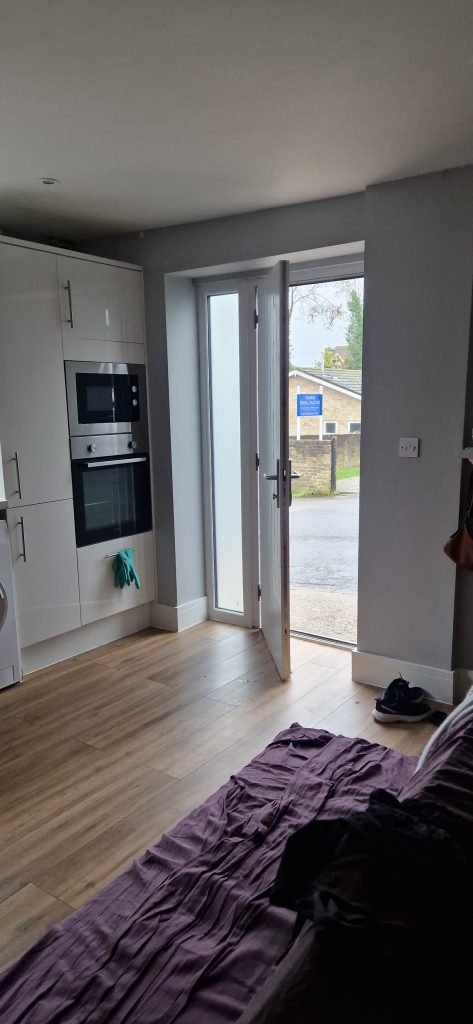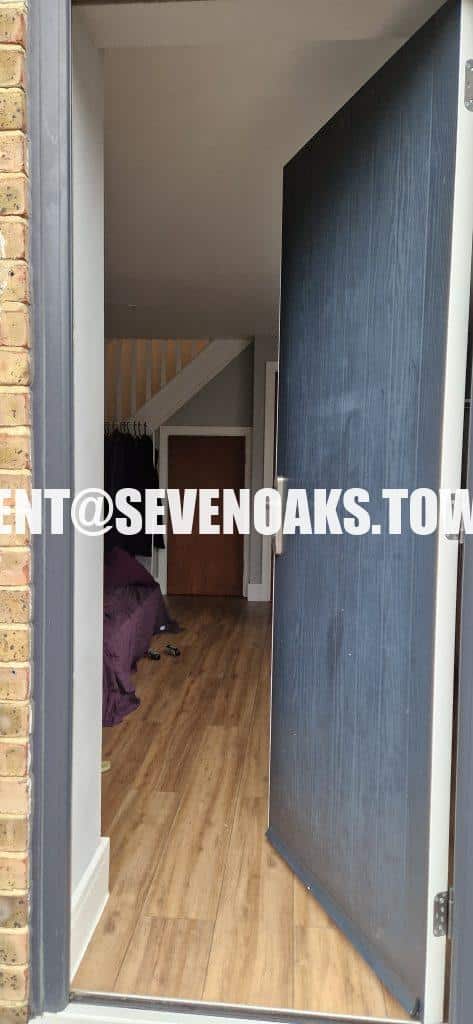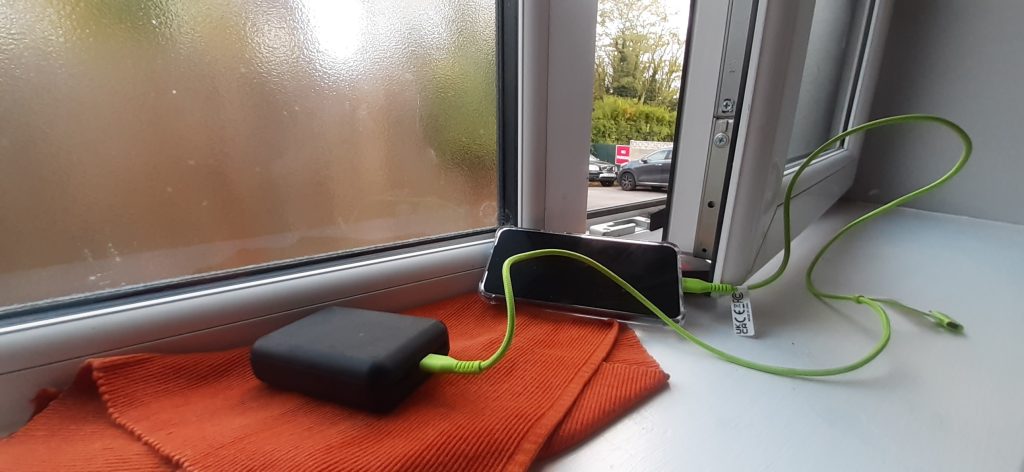Living in emergency accommodation is already a challenging experience, but when basic necessities like mobile connectivity and safe living conditions are compromised, the situation becomes unbearable. As a current resident of the emergency accommodation at 2 Central Road, Strood, approved by the Sevenoaks Council, I want to shed light on the severe inadequacies that make daily life difficult and unsafe.
Lack of Mobile Signal: A Daily Struggle
One of the most pressing issues in my accommodation is the complete lack of mobile signal.
If you have a story to share, please email to: [email protected]
The thick walls and energy-efficient glass used in the building construction effectively block all mobile signals, leaving me without any means of reliable communication.
Lack of Mobile Signal: A Daily Struggle
This disconnect forces me to seek out places like the nearby McDonald’s just to access the internet and stay connected with the outside world. The lack of mobile coverage forces me to rely on the nearby McDonald’s to make essential phone calls, such as contacting the police, Citizen’s Advice, and mental health support services. However, this is not a viable solution. Although McDonald’s is open 24/7, I still miss important calls from the council office and other critical services. Moreover, making calls from a public place compromises my privacy and dignity, as staff often assume I work there during the day, making it difficult to use their facilities without suspicion. This constant struggle disrupts my daily routine, incurs additional costs, and severely invades my privacy. Without dependable mobile connectivity, I feel isolated, vulnerable, and pushed to the brink of existence. This disruption affects my daily routine, adds extra costs, and severely limits my privacy.
The thick walls and energy-efficient glass used in the building construction effectively block all mobile signals, leaving me without any means of reliable communication.
Winter Woes: Cold and Unsafe Living Conditions
As winter approaches and temperatures drop to 0°C or lower, the lack of connectivity becomes even more problematic. To access even minimal mobile signal, I am forced to keep a window open. This makes the living space dangerously cold, risking hypothermia and other cold-related health issues. Additionally, an open window compromises the heating system’s efficiency, making it nearly impossible to maintain a warm and habitable environment. Beyond the cold, leaving a window open exposes the property to potential security risks, making me feel unsafe and vulnerable.
To stay connected to the world I have to keep the door wide open
Security Risks: Constant Fear of Intrusion
Keeping doors or windows open to facilitate mobile connectivity significantly heightens the risk of unauthorized individuals entering the property. This constant vulnerability not only threatens my personal safety but also contributes to ongoing stress and anxiety. The fear of potential intrusions affects my mental well-being, making it difficult to feel secure in what is supposed to be a safe haven.
Inadequate Response from Authorities
Despite repeatedly raising these critical issues with both the Sevenoaks Council and the management company, my concerns have been dismissed without any actionable solutions. Instead of receiving support, I have been caught in a continuous cycle of blame-shifting. In this Cycle of Game neither party takes responsibility for addressing the problems. This lack of response has left me in a precarious situation with no means to improve my living conditions.
Impact on Daily Life
- Limited Access to Essential Services: The necessity to seek connectivity outside the accommodation restricts my ability to perform daily tasks, access online services, or seek employment opportunities.
- Health and Safety Concerns: Exposure to cold temperatures due to open windows during winter poses significant health risks, making the accommodation unsafe and unsuitable for habitation during extreme weather conditions.
- Social Isolation: The inability to stay connected exacerbates feelings of isolation, making it difficult to engage with community support networks or maintain personal relationships.
The emergency accommodation at 2 Central Road, Strood falls woefully short of providing a safe, secure, and livable environment for its residents. The absence of mobile signal coverage, coupled with the need to compromise on heating and security, underscores the property’s inadequacy for emergency housing purposes. To address these critical issues, the Sevenoaks Council must take immediate action by:
- Reevaluating Accommodation Standards: Ensure that all emergency accommodations meet essential connectivity, safety, and livability standards before approval.
- Implementing Technological Solutions: Install mobile signal boosters or dedicated antennas to enhance connectivity without compromising the property’s security or energy efficiency.
- Enhancing Building Infrastructure: Retrofit existing properties with materials and designs that allow better signal penetration while maintaining energy efficiency and security.
- Providing Alternative Housing Options: Offer relocation to more suitable accommodations that prioritize residents’ safety, connectivity, and overall well-being.
- Establishing Clear Communication Channels: Create transparent and effective channels for residents to voice concerns and receive timely support from authorities and management companies.
I urge the Sevenoaks Council and relevant authorities to prioritize the resolution of these issues. If the Council team cares about the residents, it has to prevent further hardship for current and future vulnerable residents. Immediate intervention is necessary to ensure that emergency accommodations fulfill their intended purpose of providing a safe environment for those in need.
If you are experiencing similar challenges in emergency accommodation, please share your story. Together, we can advocate for the necessary changes to ensure that all residents have access to safe, secure, and connected living environments.
Stay Connected I you can 🙂
Follow us on Facebook, Twitter, and Instagram for updates and support.
#Sevenoaks #EmergencyAccommodation #HousingCrisis #ConnectivityIssues #WinterSafety #CouncilInaction
This post aims to raise awareness about the significant shortcomings of the emergency accommodation at 2 Central Road, Strood. By sharing personal experiences and highlighting critical issues, we hope to prompt immediate action from the Sevenoaks Council and other relevant authorities to ensure that all residents receive the support and living conditions they deserve.
The image shows an interior view a living space with the door open at Central Road, Strood. It serves as emergency accommodation approved by the Sevenoaks Council
The main door is open, leading directly to the outside, revealing a street and a building in the background. Inside, there’s a small kitchen area with a built-in microwave and oven, as well as what appears to be a washing machine tucked below the counter.

This open-door setup highlights MY uncomfortable situation—opening the door for a signal or exposing ME as a resident to the cold and potential safety risks.
… lack of connectivity).

By keeping the door open, the outside signal is able to penetrate, enabling minimal connectivity for basic communication. However, this solution comes at a significant cost. During colder months, with temperatures dropping to 0°C or lower, keeping the door open allows cold air to pour in, making the living environment unsafe and uncomfortable. It also exposes Me as a resident to potential security risks, as the open door provides easy access for strangers to enter the property.
inadequacy of the property for emergency accommodation approved by the Sevenoaks council
This makeshift solution highlights the inadequacy of the property for emergency accommodation, as residents are forced to choose between basic connectivity and personal safety, as well as warmth. This underscores the lack of foresight or care from the authorities who approved such living conditions.
Keeping the door open during the summer was a temporary workaround that allowed me to access mobile signal as the thick walls and energy-efficient windows of the accommodation completely blocked connectivity.
However, this “solution” was far from ideal—it exposed me to security risks and made me feel unsafe. Despite raising this issue repeatedly with both the council and the management company, I was dismissed. Instead I was caught in a circular blame game, with no one taking responsibility for resolving the problem.
Now, as winter temperatures drop to 0°C or lower, keeping the door open is no longer a feasible option.
The freezing cold air makes the accommodation uninhabitable, leaving me completely cut off from communication and emergency services. This situation highlights the severe inadequacy of the accommodation, where even basic connectivity is sacrificed, forcing residents like me into isolation and vulnerability, especially during critical weather conditions.

The thick double glazing and insulation materials prevent any mobile signal from entering the room.
To get even a minimal signal for essential calls, messages, or basic internet access, I am forced to leave the window open, exposing myself to the cold and the outside world.
